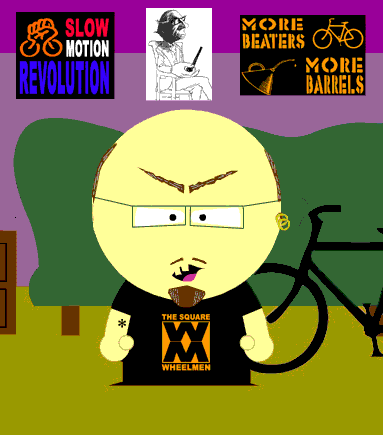Kaffee kultur
warm drinks (and inspiration)
when the temperature falls
when the temperature falls
 Today and tomorrow will be colder than yesterday. The wind-chill will probably drop to five below zero! Until I have my office set up for the new job, though, I'll have to brave the extremes. I almost regret finding a space. I do my best caffeine-fueled work in coffee houses and caffès. As the London actor and poet, Thomas Jordan, wrote in 1657:
Today and tomorrow will be colder than yesterday. The wind-chill will probably drop to five below zero! Until I have my office set up for the new job, though, I'll have to brave the extremes. I almost regret finding a space. I do my best caffeine-fueled work in coffee houses and caffès. As the London actor and poet, Thomas Jordan, wrote in 1657:You that delight in Wit and Mirth, and long to hear such News,
As comes from all parts of the Earth, Dutch, Danes, and Turks and Jews,
I'le send you a Rendezvous, where it is smoaking new:
Go hear it at a Coffee-house, — it cannot but be true —
You shall know, there, what Fashions are; How Perrywiggs are curl'd;
And for a Penny you shall heare all Novells in the world;
Both Old and Young, and Great and Small, and Rich and Poore you'll see:
Therefore let's to the Coffee all, Come all away with me.
 So before I head out, here are several excerpts from two wonderful articles on the significance of kafekultur. In One latte, hold the milk, The New York Times blogger, Stacy Schiff writes today:
So before I head out, here are several excerpts from two wonderful articles on the significance of kafekultur. In One latte, hold the milk, The New York Times blogger, Stacy Schiff writes today:Alice Jones of The Independent agrees in her 6 October 2006 book review, How café culture influenced writers and artists.In an innovative world, we congregate over coffee rather than over a beer: that’s why the "Cheers" decade gave way to that of Friends. The point of a bar, after all, is turning off the brain. The point of a cafe is switching it on. From an age that was arguably as taken with the sound of its own voice and as fixated on information as we are, the coffeehouse comes down to us with an illustrious intellectual heritage. It supplied Adam Smith and d’Alembert with office addresses. Coffee was Beethoven and Voltaire’s primary source of nourishment. Samuel Johnson was a 40-cup-a-day man. Balzac, the champion caffeinator, was a coffee-eater, like Dr. Bohannon.
And Schiff concludes,While the French writer Boris Vian's assertion - "if there had not been any cafés, there would have been no Jean-Paul Sartre" - somewhat overestimates the powers of caffeine, the coffee house has witnessed and fuelled many of the intellectual, cultural and political developments in European society. In Les Deux Magots and Café de Flore in Paris, Sartre and Simone de Beauvoir thrashed out their philosophy of existentialism. St Petersburg's Literary Café trades on its reputation as the bar where Pushkin downed his last dose of Dutch courage before his fatal duel. Venice's rival cafés on either side of St Mark's Square, Florian and Quadri, have played host to Byron, Casanova, Wagner and Henry James, and the Café Els Quatre Gats in Barcelona is assured its place in art history as the location for the 19-year-old Picasso's first exhibition.
An addiction like ours needs no excuse, as you know well. Is that your second cup already? Caffeine sparks imagination, stimulates conversation, accelerates thought, enhances mood, increases endurance and activates memory. It allows us to beat the clock; how anyone managed to build a cathedral before the advent of espresso is beyond me.
Labels: bikeWINTER, books, history, pensées, writing







3 Comments:
Hello there. In the last six months I have sought out coffee places in India, Nepal, Malaysia, and Singapore. In all, I needed the bean to think. And for WiFi. In Delhi I had to settle for a place called Passion Tea. There is where I wrote most of what is on my blog.
Anyway, I am a fan of your blog and have added you to my blogroll.
Here's wishing that you stay warm in cold Chicago.
Peace,
Ridwan
South Africa
Mmmmm, coffee.
I'll take a large. Black. No room for cream.
Post a Comment
<< Home